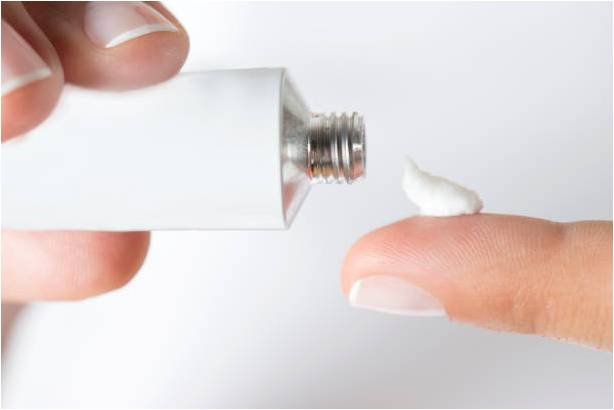Some people think that they can skip the moisturizer if they have oily skin. But the key is not to skip the moisturizer, but to find a moisturizer that works well for your oily skin.

Why do I need a moisturizer if I have oily skin?
A moisturizer helps to protect the skin barrier. The skin barrier is the top layer of the skin. A moisturizer helps to keep the skin barrier intact, and plump. If the skin barrier is compromised in any way, then the skin is ‘broken’ which lets irritants into the bottom layers of the skin. This would lead to inflammation, irritation, sensitivity, itchiness, and the skin would react by producing more oil. When we have oily skin, we usually use treatment products (not moisturizers, but the treatment products with ingredient like benzoyl peroxide) to control the oil, that contain ingredients that can be drying on the skin. A moisturizer makes sure that the skin remains plump, healthy and intact. Moisturizers also make sure that the skin remains hydrated, as water loss still occurs in oily skin.
The key is to find a moisturizer that feels right to you. Preferably it is a lightweight formula that does not feel heavy and oily on the skin. They are usually called lotions instead of creams. Sometimes we can find gel formulas which are lighter, although gels act more to hydrate the skin than to protect the skin barrier. Preferably with a gel moisturizer you would still apply a light weight moisturizer on top. A good moisturizer makes sure that it does not cause you more irritation, more breakouts, and more oil production.
Some ingredients to look for in a moisturizer for oily skin
Here are some ingredients that are good in moisturizers for oily skin. You are not going to find all these ingredients in one product, but this will give you a sense of what to look for.
- alpha hydroxy acid like lactic acid or glycolic acid to hydrate skin (usually in moisturizers they are in small quantity – so they hydrate instead of exfoliate due to their low strength). Some people who are very sensitive might sting.
- ceramides help to protect the skin barrier. Some people find that ceramides sting their skin, especially if they have sensitive skin or a compromised skin barrier. But you would need to try it out to find out how it works for you.
- glycerin hydrates the skin without leaving it greasy or heavy
- hyaluronic acid binds water in the skin – so hydrating
- niacinamide to help calm the skin, especially if you have redness. Some people find that niacinamide too can sting.
- panthenol (vitamin B5) to bind water in the skin – so hydrating. Also helps heal the skin from redness and irritation
- petrolatum helps to seal the skin to prevent water loss
- silicones makes the skin smooth, soft, and plump-looking (temporarily fills in fine lines)
Some product recommendations
Here are some moisturizers that would work for oily skin. Usually it is a matter of trial and error to find the one that works best for you. Also you might need to switch formulations between the summer months and the winter months.
CeraVe Facial Moisturizing Lotion PM (ceramides, hyaluronic acid, niacinamide)
CeraVe Moisturizing Lotion (ceramides, hyaluronic acid) – lightweight formula, but a bit richer than the CeraVe Facial Moisturizing Lotion PM – might be good for you in winter if you like CeraVe
Cetaphil Daily Hydrating Lotion (hyaluronic acid, glycerin, urea)
COSRX Hydrium Green Tea Aqua Soothing Gel Cream (gel formula with panthenol and green tea extract) – it hydrates and soothes, but would need a moisturizer on top for the skin barrier
La Roche-Posay Toleriane Ultra Fluid (niacinamide, glycerin)
Neutrogena Hydro Boost Facial Gel Cream (gel formula with hyaluronic acid)
Neutrogena Oil-Free Moisturizer (petrolatum, no niacinamide)
Vanicream Moisturizing Lotion (quite a neutral moisturizer that is tolerated by many people, especially sensitive skin)
